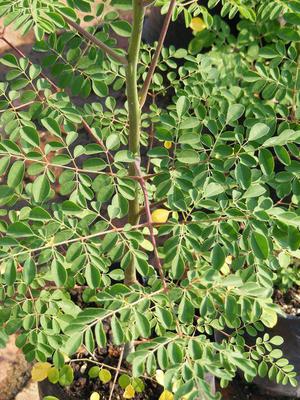Discover the Healing Power of Ugandan Moringa: Benefits, Uses, and Recipes for Everyday Health
In Uganda, where traditional remedies blend seamlessly with modern wellness trends, moringa—locally known as "mulondo" or "drumstick tree"—stands out as a versatile superfood. Grown abundantly across the country, from the fertile soils of central Uganda to the arid regions of the north, moringa has been a staple in local diets and medicine for generations. Recent 2025 studies highlight its role in combating malnutrition and chronic diseases, making it particularly relevant amid rising health concerns like diabetes and hypertension in the region. This guide explores the nutritional profile, evidence-based benefits, practical uses, and Ugandan-inspired recipes for moringa, empowering you to harness this "miracle tree" for better health. Whether you're in Kampala seeking natural boosts or in rural areas utilizing homegrown plants, moringa's accessibility makes it a monetizable topic for health enthusiasts and bloggers alike.
Moringa's popularity in Uganda stems from its resilience; the tree thrives in diverse climates, providing leaves, pods, seeds, and roots year-round. With non-communicable diseases on the rise—diabetes affecting over 4% of Ugandans according to recent WHO data—incorporating local superfoods like moringa can offer affordable, natural solutions. Let's delve into why this plant is gaining traction globally while remaining rooted in Ugandan traditions.
The Historical and Cultural Significance of Moringa in Uganda
Introduced to Uganda in the early 20th century, moringa quickly integrated into local agriculture and herbal practices. In Bantu communities, it's called "doodo" and used for boosting red blood cell counts, while in northern regions, it's valued for its drought resistance and nutritional density. Traditional healers prescribe moringa leaves for ailments like anemia and digestive issues, aligning with ancient African uses where the tree was dubbed a "gift of nature."
In modern Uganda, initiatives like those from the Ministry of Health promote moringa for malnutrition prevention, especially among children and pregnant women. Farms in districts like Wakiso and Mbale cultivate it commercially, exporting powder and oil, which underscores its economic potential. This cultural staple not only supports local economies but also offers a bridge to sustainable health practices.
For more on Ugandan herbal traditions, visit our Elite Blog.
Nutritional Profile: Why Moringa Is a Powerhouse
Moringa oleifera packs an impressive array of nutrients, earning its superfood status. A 100g serving of fresh leaves provides about 64 calories, with high protein (9g), fiber (2g), and vitamins. It's richer in vitamin C than oranges, vitamin A than carrots, and calcium than milk—ideal for Ugandans facing nutrient deficiencies.
Key nutrients include:
- Vitamins: Vitamin A (for vision), C (immunity), and K (bone health).
- Minerals: Iron (anemia prevention), potassium (blood pressure), and magnesium (energy).
- Antioxidants: Polyphenols and flavonoids combat inflammation.
- Protein: Contains all essential amino acids, rare for plants.
Pods offer 46% fiber and 20% protein, while seeds provide healthy fats. 2025 studies confirm moringa's role in addressing micronutrient gaps in developing regions like Uganda.
| Nutrient (per 100g leaves) | Amount | % Daily Value* |
|---|---|---|
| Calories | 64 | 3% |
| Protein | 9g | 18% |
| Vitamin A | 378mcg | 42% |
| Vitamin C | 51mg | 57% |
| Iron | 4mg | 22% |
| Calcium | 185mg | 14% |
*Based on 2,000-calorie diet. Sources: Recent nutritional analyses.
Evidence-Based Health Benefits of Moringa
2025 research underscores moringa's therapeutic potential, particularly for Ugandans dealing with lifestyle diseases.
- Immunity Boost: High vitamin C and antioxidants enhance white blood cell function, aiding infection resistance—crucial in malaria-prone areas.
- Blood Sugar Regulation: Improves insulin sensitivity, beneficial for diabetes management, affecting millions in Uganda.
- Anti-Inflammatory Effects: Reduces chronic inflammation linked to arthritis and heart disease.
- Digestive Health: Fiber alleviates constipation; antimicrobial properties fight gut bacteria like H. pylori.
- Nutritional Support: Combats malnutrition, with leaves providing more iron than spinach.
- Heart Health: Lowers cholesterol and blood pressure.
- Skin and Hair: Antioxidants promote collagen, used in local beauty remedies.
Animal studies show liver protection and anti-cancer potential, though human trials are ongoing.
Ugandan-Inspired Moringa Recipes
Incorporate moringa with local flavors for delicious meals.
Moringa Leaf Salad (Inspired by Kwadon Zogale):
- Ingredients: 6 cups fresh moringa leaves, 2 onions, 3 tomatoes, kuli-kuli (peanut cake), salt.
- Instructions: Blanch leaves, mix with chopped veggies and crushed kuli-kuli. Serves 4.
Moringa Sauce for Matooke:
- Ingredients: Moringa leaves, onions, tomatoes, garlic, fish, palm oil.
- Instructions: Sauté veggies, add leaves and protein, simmer. Pair with steamed bananas.
Moringa Pancakes:
- Ingredients: Moringa powder, flour, banana, milk.
- Instructions: Blend and cook for a nutritious breakfast.
Moringa Soup:
- Ingredients: Moringa powder, tomatoes, ginger, spices.
- Instructions: Boil for a quick immune boost.
These recipes adapt traditional Ugandan elements, making moringa approachable.
How to Incorporate Moringa Daily
Start with 1-2 teaspoons of powder in teas or smoothies. Fresh leaves can be added to salads or stews. In Uganda, source from markets or grow your own—the tree matures quickly. For supplements, choose organic Ugandan brands.
Safety and Precautions
Moringa is safe in moderation, but excessive intake may cause digestive upset. Pregnant women should consult doctors; it may interact with medications.
Frequently Asked Questions
- What are the main moringa benefits in Uganda? Boosts immunity, regulates blood sugar, and fights malnutrition.
- How do I use moringa leaves? In salads, sauces, or teas.
- Is moringa safe daily? Yes, 1-2g; monitor for side effects.
- Where to buy in Uganda? Local markets or farms in Mbale.
- Can it help diabetes? Yes, improves insulin sensitivity.
- Recipes for beginners? Start with simple salads or soups.
Conclusion
Moringa embodies Uganda's rich herbal heritage, offering affordable health solutions. Integrate it for enhanced wellness and vitality.
Share your moringa stories below!
Related Articles on Elite Blog:





Comments
Post a Comment
Thanks for your response,May God bless you